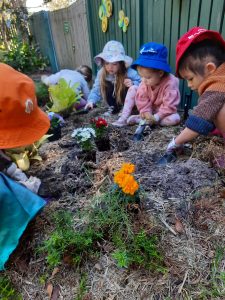At South Pine Kindergarten we approach sustainability from many different perspectives.
As the need for creating a more sustainable environment globally, so does the importance of embedding sustainable practices to inform a future generation to take care of our world. Sustainability at South Pine Kindy is a core value and considers many perspectives. We recognise that sustainability is more than simply caring for the environment it also considers, social, economic, political and cultural elements.
At our Kindergarten we have:
- Recycling and rubbish bins for children to use
- Compost Bin used for the gardens
- The children are chosen recycle food scraps into our worm composting farm. The nutrients are used to fertilise the gardens.
- Reusable hand towels rather than paper towels in the adults’ bathroom and kitchen – and looking at ways to re-introduce hand towels in the children’s bathroom.
- A strong commitment to using natural and/or recycled materials for children’s play and for art and craft.
- Edible gardens for sharing and/or cooking produce
- Families encouraged to bring in recyclable items for children’s activities
- Families encouraged to reduce food packaging by introducing a nude food lunch box initiative
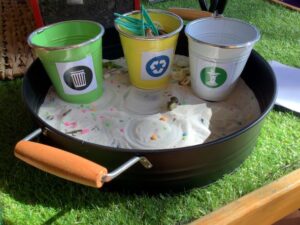
Children learning to love Nature
In our uniquely designed outdoor environment with small spaces, large fig tree, senses garden, the children are free to imagine, create games, and role play situations. In a relaxed environment free of hurry, distraction and technology children are building important connections. When children learn to love the natural environment, they are learning to care for it.
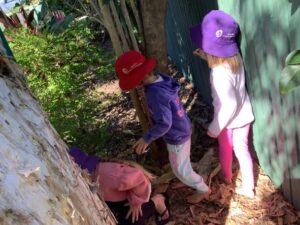
Embedded into our days at Kindy is the opportunity to wonder, explore, notice the changes occurring in our outdoor environment. Children and Educators discuss the role of the Bees, and care for the Bee Garden by planting fresh flowers and keeping them watered. Children play and interact with the native stingless beehive, and frog pond within our senses garden space that contains many native plants, fruits (lilly pilly, mandarine, blueberry, lemonade trees).
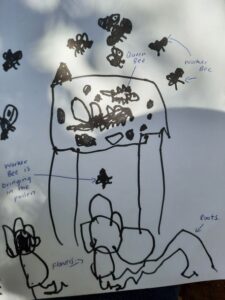
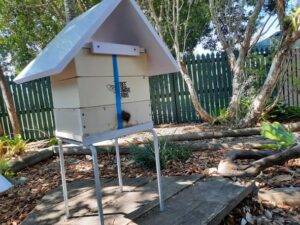
Each year the children plant fresh vegetables for sharing and cooking in the kitchen garden.
The garden and kitchen provide a real-life context for learning, which interweaves the theories and practices behind growing, harvesting, preparing and sharing fresh, seasonal foods.
When we are outside and involved in activities with fresh air and gentle sunlight such as Gardening it can have a positive effect on everyone’s well-being.
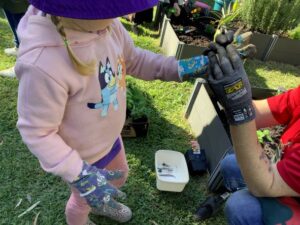
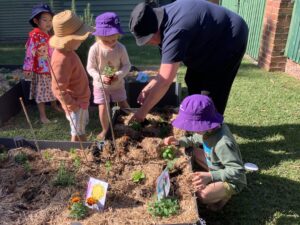
Social Sustainability in Developing and Building Relationships
As children interact with each other, they are building a sense of well-being through exploring relationships and developing friendships. Each group of 22 children have the benefit of building on ways to interact in friendships across the Kindy year. Peer learning can be both fun and exciting but also at times challenging. We discuss ways of being fair and to respect each member of our group. Children learn to consider other perspectives in play, learn to wait, learn to share as well as respecting others’ opinions and work or creations. Connections are built between familiar children, families, and Educators to support each child’s learning journey.
